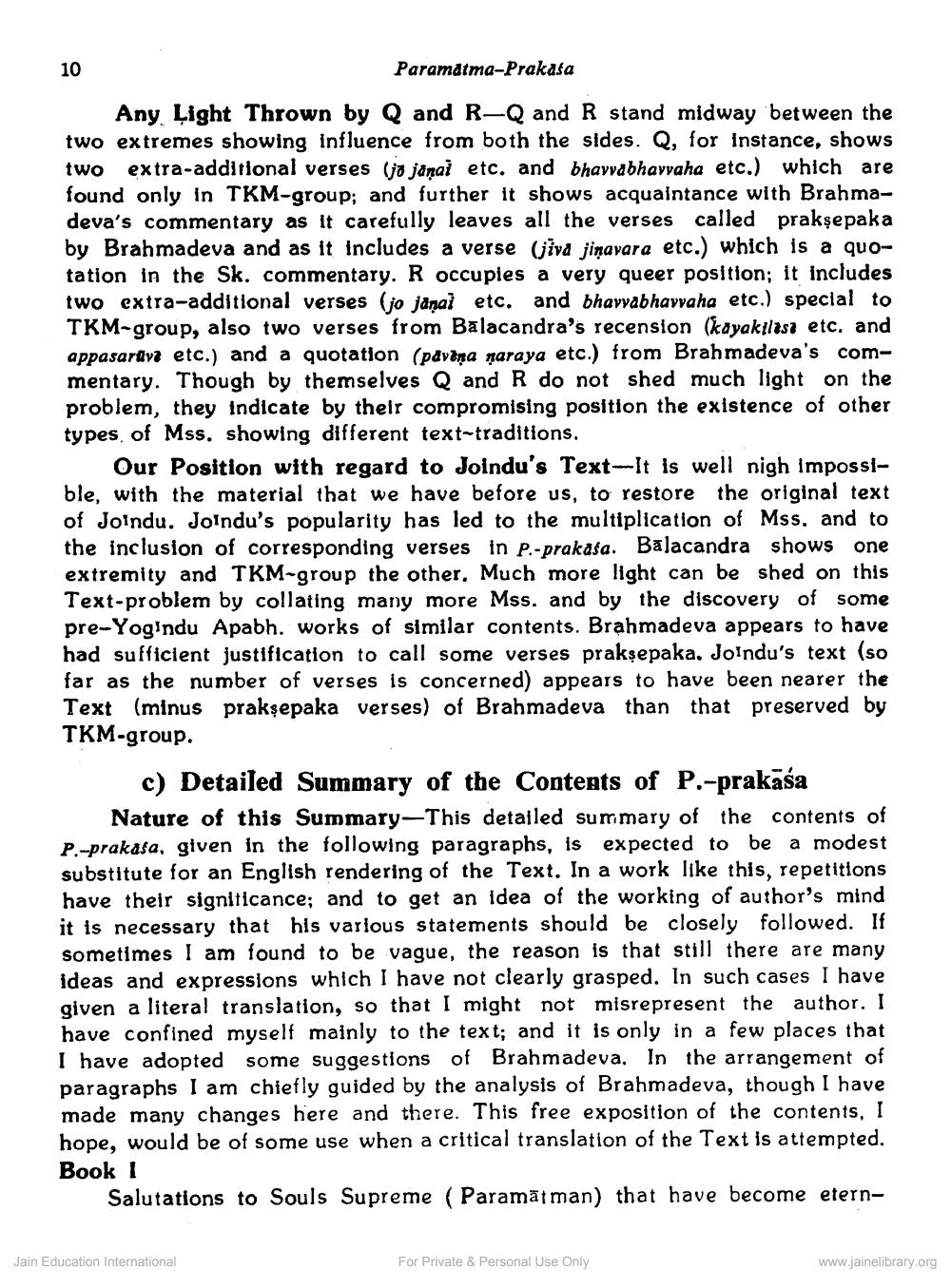________________
Paramdtma-Prakasa
Any Light Thrown by Q and R-Q and R stand midway between the two extremes showing influence from both the sides. Q, for instance, shows two extra-additional verses (jo janai etc. and bhavabhavvaha etc.) which are found only in TKM-group; and further it shows acquaintance with Brahmadeva's commentary as it carefully leaves all the verses called praksepaka by Brahmadeva and as it includes a verse (jiva jimavara etc.) which is a quotation in the Sk. commentary. R occupies a very queer position; it includes two extra-additional verses (jo jamal etc. and bhavvabhavvaha etc.) special to TKM-group, also two verses from Balacandra's recension (kayakilasi etc. and appasaraya etc.) and a quotation (pavena naraya etc.) from Brahmadeva's commentary. Though by themselves Q and R do not shed much light on the problem, they indicate by their compromising position the existence of other types of Mss. showing different text-traditions.
Our Position with regard to Joindu's Text-It is well nigh impossible, with the material that we have before us, to restore the original text of Joindu. Joindu's popularity has led to the multiplication of Mss, and to the inclusion of corresponding verses in P.-prakasa. Balacandra shows one extremity and TKM-group the other. Much more light can be shed on this Text-problem by collating many more Mss. and by the discovery of some pre-Yogindu Apabh. works of similar contents. Brahmadeva appears to have had sufficient justification to call some verses praksepaka. Joindu's text (so far as the number of verses is concerned) appears to have been nearer the Text (minus praksepaka verses) of Brahmadeva than that preserved by TKM-group.
c) Detailed Summary of the Contents of P.-prakaśa Nature of this Summary-This detailed summary of the contents of P.-prakasa, given in the following paragraphs, is expected to be a modest substitute for an English rendering of the Text. In a work like this, repetitions have their signiticance; and to get an idea of the working of author's mind it is necessary that his various statements should be closely followed. If sometimes I am found to be vague, the reason is that still there are many ideas and expressions which I have not clearly grasped. In such cases I have given a literal translation, so that I might not misrepresent the author. I have confined myself mainly to the text; and it is only in a few places that I have adopted some suggestions of Brahmadeva. In the arrangement of paragraphs I am chiefly guided by the analysis of Brahmadeva, though I have made many changes here and there. This free exposition of the contents, I hope, would be of some use when a critical translation of the Text is attempted. Book 1
Salutations to Souls Supreme (Paramātman) that have become etern
Jain Education International
For Private & Personal Use Only
www.jainelibrary.org




